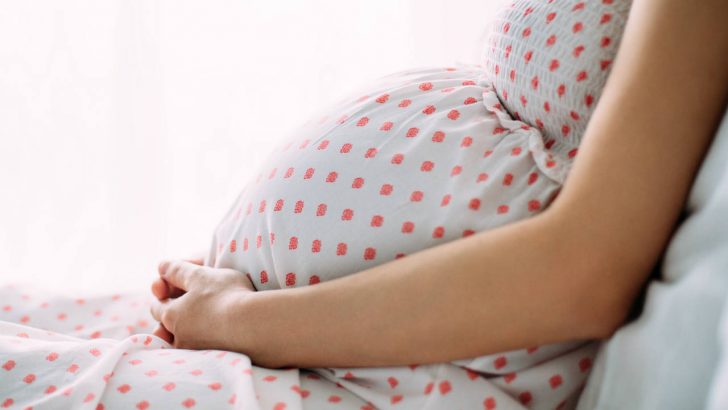The View
As the dust settles on the repeal of the Eighth Amendment to the Irish Constitution, I watched the joy, the rapture, the excitement, the delight of those who voted ‘Yes’ in the referendum with disbelief. They argue that what they were celebrating was the recognition of a woman’s right to choose what she wants to do with her pregnancy.
What though of all the little girls, the daughters and granddaughters and nieces who will now never be allowed the gift of life? For it was the right to kill those little unborn baby girls, and all the little boys too, that they celebrated. It was the right to terminate lives yet to be conceived; to inject into the heart of a tiny baby girl in the womb, who was too big to just abort through medication, potassium hydrochloride, so that she would die, and then to take her from her mother’s womb, the one place where she should have been safe.
Unwanted
Like many I am grieving, grieving for all those little girls, and all the little boys, deemed expendable and unwanted. I grieve too that so many other woman rejoice that Ireland will now routinely kill babies in the womb. It is a terrible moment for those of us who want above all to cherish and protect all life, providing support, comfort, compassion, respect and dignity for both the mother and the unborn child.
It was never the case that the Eighth Amendment prioritised the child over the mother, despite what has been said. Savita Halappanavar did not die because she was refused an abortion. She died because she was suffering from sepsis which kills so rapidly, and which was not properly diagnosed and managed.
Now Ireland’s doctors, not having been consulted about how abortion will be provided face the expectation that they will be the on the front line providing abortions. Such has been the language of choice during the campaign, that it admitted of no acknowledgement that whilst abortion will be available as a matter of choice during the first twelve weeks of pregnancy, actually it would, under the Heads of Bill, only be available thereafter in certain circumstances.
The circumstances prescribed are where two doctors certify that there is a risk to the life of, or serious harm to the health of a pregnant woman and the unborn child has not reached ‘viability’ something yet to be defined although we know that life is viable now at 22 weeks of gestation, or in cases of emergency when one doctor will be able to make the decision and carry out the abortion.
In addition, in cases in which the unborn baby suffers from a condition which is likely to lead to its death either before or shortly after death, that child’s life will be able to be terminated right up to birth. There is no definition of such situations and it will be interesting to see how the Dáil defines them in it’s forthcoming legislation. Children do live on occasion long after birth with such conditions.
How will this work? Risk to life and serious harm to health are high thresholds. Yet the expectation generated, and the language of all the politicians, is about respecting a woman’s right to choose. So what will happen if a doctor identifies no risk to life, no threat of serious harm to health? There would be no automatic right to an abortion, it would not be the woman’s choice, if the law were applied properly.
Above all will Ireland protect those doctors who have a conscientious objection to being asked to perform a surgical abortion, or to prescribe the medication which will end the life of the unborn child. In 2010 the Council of Europe’s Parliamentary Assembly adopted Resolution 1763 affirming the right of conscientious objection for medical professionals. This resolution states: “No person, hospital or institution shall be coerced, held liable or discriminated against in any manner because of a refusal to perform, accommodate, assist or submit to an abortion, the performance of a human miscarriage, or euthanasia or any act which could cause the death of a human foetus or embryo, for any reason.”
It is non-binding but it reaffirms the normative understanding of freedom of conscience. The conscientious objection provision in Britain’s Abortion Act appears to be wider than the corresponding Irish proposal. It states that, apart from emergency situations, no person shall be under any duty, whether by contract or by any statutory or other legal requirement, to participate in any treatment authorised by this Act to which he has a conscientious objection.
The Heads of Bill published by the Government provide that medical practitioners, nurses and midwives shall not be obliged to “carry out or assist in the carrying out of” an abortion. This is much narrower than the wording of Resolution 1763 or the UK provision.
It also says that no medical practitioner shall be forced to carry out a termination in an emergency. However in an emergency situation the current Heads of Bill provide no corresponding protection for nurses and midwives, comparable to that provided in situations where there is no immediate risk to life.
The proposal appears to require nurses and midwives to participate. All that is required is that one doctor certifies, or decides that there is an emergency and that an abortion must be carried out to avert that emergency. This is something which nurses across Ireland may wish to consider.
It had been thought that the UK provision protected doctors and nurses from participating whether directly or indirectly in managing, arranging, supervising or carrying out abortions.
That all changed in 2014 when the Supreme Court decided that two senior midwives who conscientiously objected to having to delegate tasks to, supervise or support those directly involved in abortion, had no protection under the law. They had been able to assert this right of conscientious objection for their whole nursing careers – which started very shortly after the Act was passed – until an amalgamation of hospitals led to their being required to do this work. Those skilled, compassionate, experienced midwives were unable to continue to serve as midwives, doing what they had done all their professional lives: helping women through the sometimes difficult process of carrying and bearing a child. They could no longer work as midwives.
It cannot be consistent with conscience to say, “I cannot do this, but I will order you to do it”. Surely if one delegates, supervises or supports an activity, one is not unreasonable in concluding that one shares moral responsibility for what happens. For that reason I have introduced a bill into Parliament at Westminster seeking to change the UK law and protect medical practitioners in this situation.
One question with which Ireland must now grapple is how will Ireland’s doctors, nurses and midwives, who came into medicine to “do no harm” and who object to being involved in any way in abortion, be protected?


 Nuala O’Loan
Nuala O’Loan
